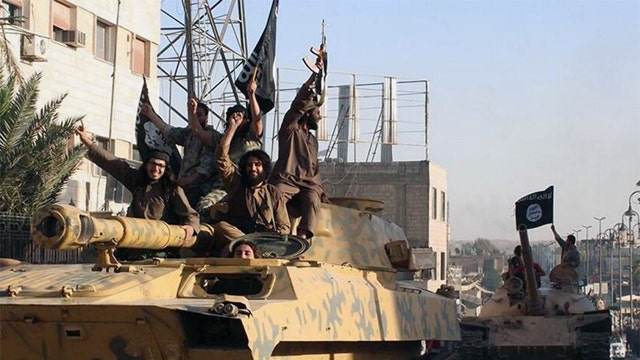Is US intelligence doing enough to address terror threats?
Judge Napolitano on NSA involvement
President Obama was given detailed and specific intelligence about the rise of the Islamic State as part of his daily briefing for at least a year before the group seized large swaths of territory over the summer, a former Pentagon official told Fox News.
The official -- who asked not to be identified because the President's Daily Brief is considered the most authoritative, classified intelligence community product analyzing sensitive international events for the president -- said the data was strong and "granular" in detail.
The source said a policymaker "could not come away with any other impression: This is getting bad."
Obama, unlike his predecessors who traditionally had the document briefed to them, is known to personally read the daily brief. The former Pentagon official, who has knowledge of the process, said Obama generally was not known to come back to the intelligence community with further requests for information based on the daily report.
The claims come as the Obama administration continues to launch airstrikes against Islamic State targets in northern Iraq and weighs whether to expand that campaign, particularly into Syria.
The president's team has publicly suggested that the group only recently gained in strength, accounting for why Obama earlier this year dismissed such extremists as akin to a "JV" team.
But after suggestions that the administration may have been blindsided by the rise of ISIS, and that poor intelligence was to blame, the former Pentagon official said some of the intelligence was so good in the region, that when the president drew a red line on chemical weapons use in Syria in 2012, the information was "exquisite."
The source said "[we] were ready to fire, on a moment's notice, on a couple hundred targets," but no order was given. In some cases, targets were tracked for a "long period of time" but then slipped away.
White House Press Secretary Josh Earnest would not confirm Tuesday whether the ISIS warnings had been included in the daily brief for at least a year.
He did note that the president and his security team have voiced concern for "years" about extremists in Syria, saying that's why the U.S. has worked with countries in the region to counter that threat and work with moderates inside Syria.
The former Pentagon official, separately, also claimed that there was a delay regarding the question of whether to act to save American journalist James Foley from Islamic State militants. The Sunday Times of London first reported that the delay was 30 days. The former Pentagon official described a White House that was hesitant and continually asking for "the intelligence to build up more."
At the time, Fox News is told that a large, heavily armed compound, believed to be housing Foley, and other potential captives, was identified near the ISIS stronghold of Raqaa, Syria.
The Obama administration confirmed, after a video of Foley's execution was posted online, that the U.S. ultimately launched a failed effort to rescue the hostage journalist. A second video surfaced Tuesday purporting to show the execution of another American journalist, Steven Sotloff.
Deputy National Security Adviser Ben Rhodes said last month, regarding Foley's capture and execution, that "we have done everything that we can possibly do to try to bring home our hostages."
He added: "It's an incredibly difficult circumstance in a place like Syria, again, where you have such a violent conflict raging. But we've used all of our military, intelligence, diplomatic resources that we can bring to bear to try to pull a thread to find out where our hostages are; to try to rescue them when we saw an opportunity; to try to work with any country that might have any means of locating them. And tragically, we weren't able to rescue Mr. Foley."
The National Security Council has not yet responded to a request for comment.












































